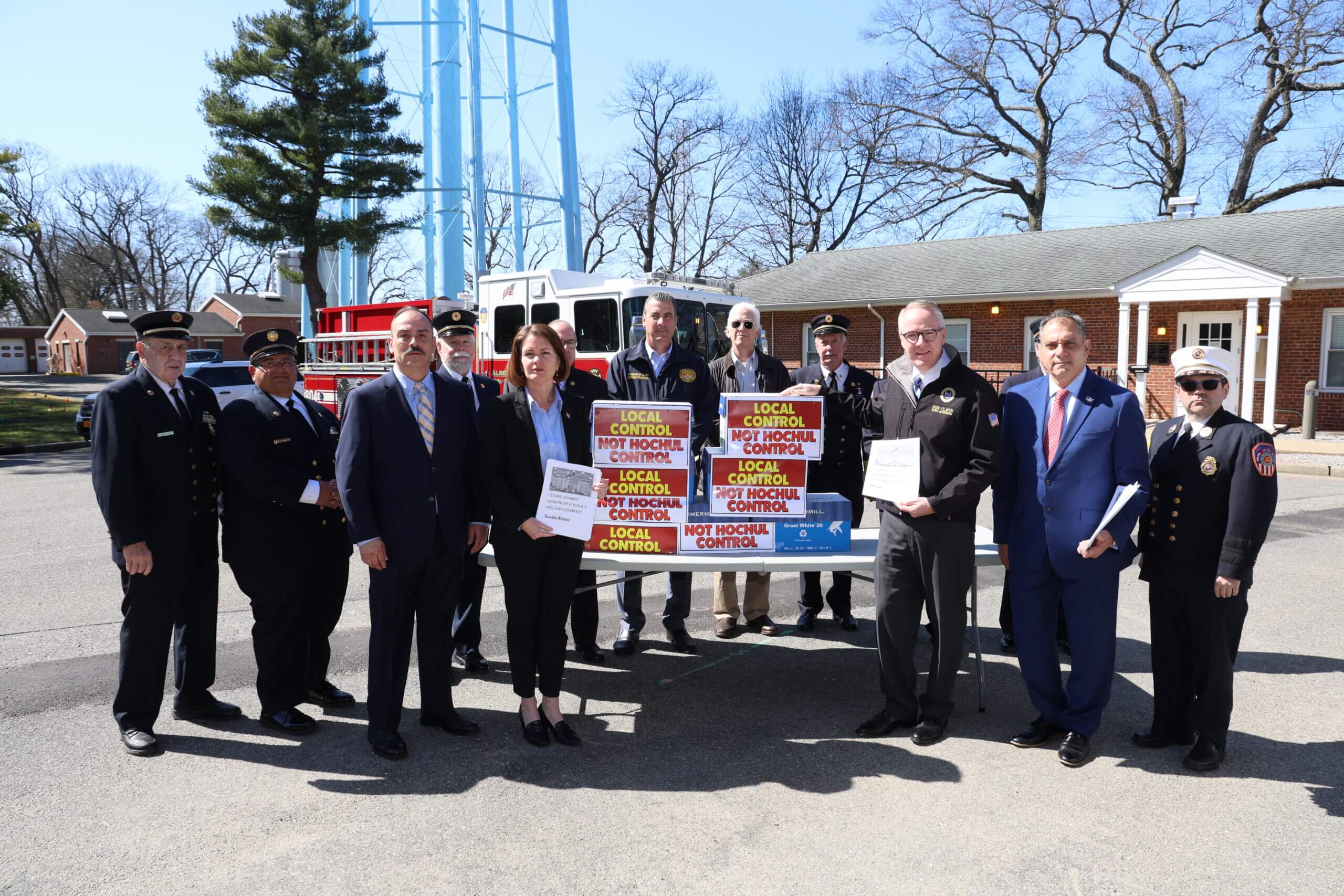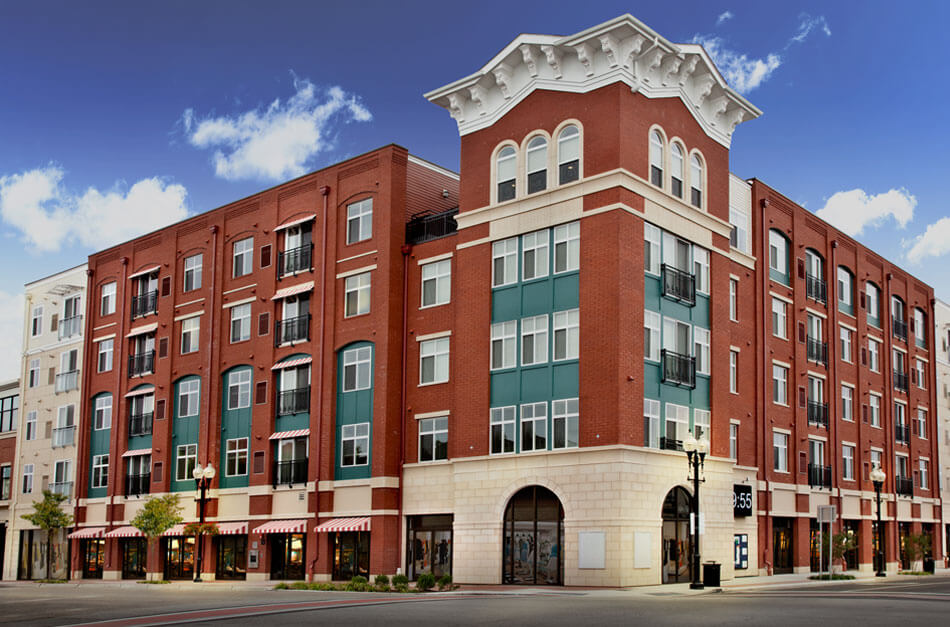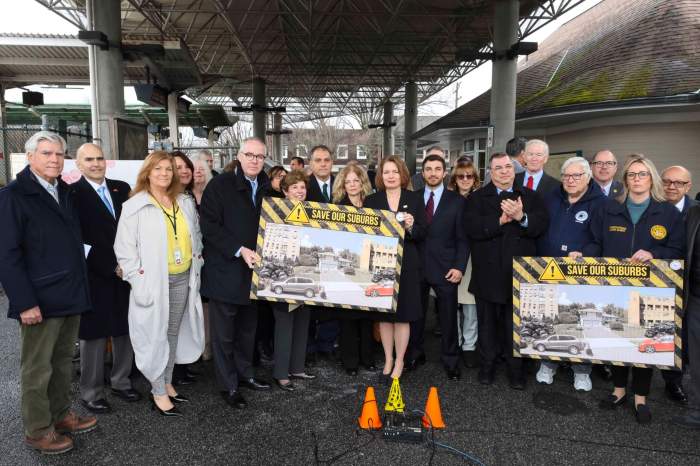What Passed — And Didn’t — in New York’s FY2024 Budget: Hochul Housing Plan Halted, For Now
New York State Gov. Kathy Hochul’s controversial proposal to fast track building thousands of affordable housing units on Long Island has been mothballed for now, but the plan that riled local officials appears poised for future debate.
Hochul made her New York Housing Compact Plan a centerpiece of her FY2024 Executive Budget in order to address the housing crisis that has caused residents to move out of New York State. Critics balked at the creation of a state-appointed board with the power to overrule local zoning boards if municipalities don’t approve enough projects to meet mandated development goals.
But the governor, fresh off of being elected in 2022 to her first full term, made clear she’s not done trying to address the issue.
“This state requires a leader who’s not afraid to get knocked down once in a while, because I always get back up,” Hochul told reporters on April 27 while announcing that she struck a deal with lawmakers on the state budget that did not include her housing plan. “And I get up even more committed to take on the challenges. Housing is an enormous challenge.”
POLICIES PASSED IN THE STATE BUDGET
Unmarked Burial Site Protection Act: Sets in place a protocol for how to have an archaeologist respond to the discovery of human remains — often those of ancient Native American ancestors — while excavating land.
Bail Reform: Pols pushed through a change to the bail law that will eliminate the standard that requires judges to prescribe the “least restrictive” means to ensure that defendants return to court. Hochul said judges needed the extra discretion.
Wage Hike: Minimum wage would be raised to $17 in New York City and some of its suburbs and $16 in the rest of the state by 2026. That’s up from $15 in the city and $14.20 upstate.
Gas Stoves: New York State is banning natural gas stoves and heating systems in most new buildings under seven stories, with some exceptions, starting in 2026. The new policy is part of a national movement aimed at reducing greenhouse gas emissions.
Pot Shops: The package also includes measures that give state regulators the authority to crack down on illegal pot shops that have opened up in some parts of the state amid a slow rollout of legal recreational marijuana dispensaries.
The proposal was Hochul’s latest crack at addressing the issue. Last year the governor sparked debate with her Accessory Dwelling Unit proposal that she also withdrew following widespread opposition to the idea of creating more apartments in existing single-family homes.
“Local communities must retain the right to determine their own land use policies, and we cannot allow this proposal to be forced upon us,” Brookhaven Town Supervisor Ed Romaine, the Republican candidate for Suffolk County executive, said at one of many rallies town leaders held in opposition to the housing compact since its unveiling in January.
“The governor’s plan will have serious consequences for our community, including increased traffic, the strain on public services, and a loss of open space, and the lack of infrastructure, including sewers,” he added.

The proposal had aimed to mandate the construction of 800,000 new homes statewide over the next decade, with transit-oriented housing — developments built near Long Island Rail Road stations — the focus. Despite Nassau and Suffolk counties building similar projects in recent years, local leaders were reluctant to add thousands more in such a short amount of time.
Also at issue was the fact that there was not enough proposed grant funding to build sewers in places such as Suffolk County, where the majority of communities lack sewer service, to support the additional units.
“It is disgraceful that in 2023 we still can’t open up our communities to multifamily housing to help our young people, and to people just starting out and to give our seniors a place to live,” Hochul said. “But also you look at the space around our transit hubs, they could be magnificent.”
Part of the issue was also timing. While it’s not uncommon for policy issues to be included in the state budget — which lawmakers passed more than a month late on May 2 following lengthy closed-door debates — legislative leaders grew exhausted by the big issues up for discussion this time around that had nothing to do with setting the state’s spending plan.
“I would have liked to have done this sooner. I think we would all agree to that,” state Senate Majority Leader Andrea Stewart-Cousins told reporters before voting began on the budget. “This has been a very policy-laden budget and a lot of the policies had to be parsed through.”
In addition to funding for schools, mass transit and social programs, the $229 billion package includes increases to the state-mandated minimum wage and changes to how judges can set bail. It also enacts rules for the Native American Unmarked Burial Site Protection Act mandating that real estate developers pause construction when human remains are uncovered.

“The budget that passed, like all budgets, has good provisions and bad provisions,” said state Assemblyman Brian Curran (R-Lynbrook). “Among the good are the tweaks to bail reform, a 10% increase to public school funding, the restoration of nonpublic school funding, and the fact that the Legislature defeated Gov. Hochul’s disastrous housing compact.
“Additionally, amendments to cashless bail policies are a significant step forward in making our neighborhoods safe again,” he adds. “The bad part is that this budget is the largest in state history, contains no tax decreases, and was decided behind closed doors.”
State Assemblyman Jake Blumencranz (R-Oyster Bay) argued that the issue should be taken up in the regular legislative session, which concludes in June and resumes in January 2024, which may come to pass in the coming months.
“This plan should not be addressed in the budget for this simple fact: New York’s housing crisis has stemmed from the current housing stock being unaffordable, not from a lack of available housing units,” he said. “We must get our priorities straight.”
The proposal had bipartisan opposition. While local Republicans were the most visibly vocal critics of the plan, it was the Democratic-led state Legislature’s leadership that ultimately succeeded in having the compact pulled from the budget before it could be passed. Yet there remains concern from both sides of the aisle about the issue of affordable housing and how to address it.
“New Yorkers have a right to affordable housing,” said state Assemblyman Ed Flood (R-Port Jefferson). “However, they should not be drained of their money and local powers.”
Hochul maintained that she will continue pushing to make affordable housing more accessible to New Yorkers, regardless of her latest defeat.
“It’s not going to be easy, but I didn’t come here to do easy,” she said. “So there’s going to be knockdowns, but I’m just getting started.”
-With Associated Press
































